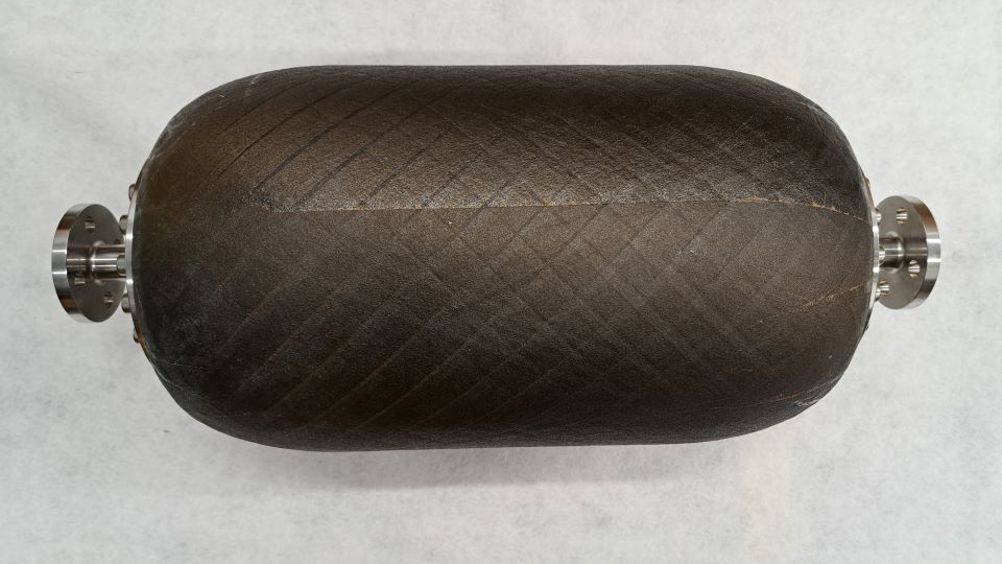NCC to accelerate UK’s cryogenic storage capabilities
The National Composites Centre is supporting the UK’s move toward a hydrogen economy with the design and manufacture of a liquid hydrogen composite storage tank set to undergo testing.

NCC said its UK-based composite cryogenic storage tank testing programme will validate and accelerate design, manufacture, and test capabilities, starting with a linerless carbon fibre tank for storing liquid hydrogen (LH2).
Cryogenic storage tanks will be required in hydrogen-powered aircraft due to come into service in the mid-2030s. Most designs for storing LH2 have centred around relatively heavy metallic tanks, while composite tanks developed in the space industry tend to be suited to low cycle applications. In comparison, commercial hydrogen aircraft will need fuel tanks to be as light as possible, undergo high cycles, and last for several decades.
To support the UK’s transition to a low-carbon economy, the NCC said it is developing underpinning knowledge for composite cryogenic storage tanks and testing by developing product demonstrators with increasing complexity. Its engineers have also created and built a range of comprehensive cryogenic concepting and design tools to help UK organisations overcome known engineering challenges.
Register now to continue reading
Thanks for visiting The Engineer. You’ve now reached your monthly limit of news stories. Register for free to unlock unlimited access to all of our news coverage, as well as premium content including opinion, in-depth features and special reports.
Benefits of registering
-
In-depth insights and coverage of key emerging trends
-
Unrestricted access to special reports throughout the year
-
Daily technology news delivered straight to your inbox










Water Sector Talent Exodus Could Cripple The Sector
Maybe if things are essential for the running of a country and we want to pay a fair price we should be running these utilities on a not for profit...